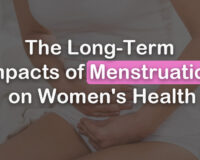Welcome to our Cervical Cancer Awareness Campaign- “BE A HERO- LEARN.PREVENT.SCREEN”
This program is designed to spread awareness about cervical cancer, the importance of early detection, and the role of HPV vaccination in preventing the disease.
We hope this information will empower you with the correct information
What is Cervical Cancer?
Cervical cancer is a type of cancer that occurs in the cervix, which is the lower part of the uterus (womb). It is mainly caused by the Human Papillomavirus (HPV), a common virus that is passed from one person to another during sexual contact. While most HPV infections go away on their own, some can stay in the body and cause changes in the cervix that may lead to cancer over time.
Why is Cervical Cancer Awareness Important?
Cervical cancer often has no symptoms in its early stages. This makes regular screening extremely important to detect any changes early, when the disease is most treatable. By learning more about cervical cancer and how to prevent it, you are taking an important step in protecting your health and the health of others around you.
HPV and Its Role in Cervical Cancer
The Human Papillomavirus (HPV) is the main cause of cervical cancer. There are many types of HPV, but some types, such as HPV-16 and HPV-18, are known to be responsible for most cervical cancers. The good news is that HPV is preventable through vaccination, and regular screening can help detect early changes in the cervix that could lead to cancer.
The Importance of HPV Vaccination
HPV vaccination is a safe and effective way to prevent the types of HPV that cause cervical cancer. The vaccine works best when given at a younger age (before any sexual activity), but it can still offer protection to women and men up to age 45.
The HPV vaccine is usually given in two or three doses, depending on the age at which the vaccination starts. It is recommended for children ( both girls and boys ) and young adults, starting from ages 9-14. However, adults can also get vaccinated.
Screening for Cervical Cancer
In addition to getting vaccinated, regular cervical screening (also known as a Pap smear or Pap test) is essential for women over the age of 21. The test helps detect abnormal cells in the cervix before they become cancerous. Early detection through screening can save lives because it allows for treatment before cancer develops.
For women aged 21-29, a Pap smear is recommended every 3 years. Women aged 30 and older should have a Pap test combined with an HPV test every 5 years, or a Pap smear every 3 years till 65 years of age irrespective of your vaccination status.
What Can You Do?
- Get Vaccinated: If you or your child is eligible for the HPV vaccine, get vaccinated! It’s an easy and effective way to reduce the risk of cervical cancer.
- Participate in Regular Screening: Women aged 21 and older should get regular Pap smears.
- Spread Awareness: Talk to your friends and family about the importance of HPV vaccination and cervical cancer screening.
Conclusion
Cervical cancer is preventable through vaccination, regular screening, and early detection. We hope this information has helped you understand the importance of protecting yourself and others from this disease.
Stay Healthy. Stay Informed. Get Vaccinated.




